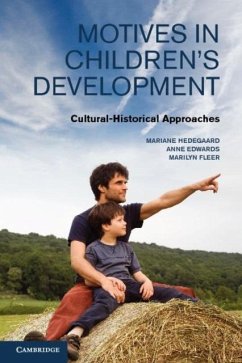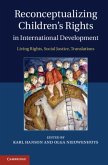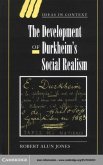The contributors to this collection employ the analytic resources of cultural-historical theory to examine the relationship between childhood and children's development under different societal conditions. In particular they attend to relationships between development, emotions, motives and identities, and the social practices in which children and young people may be learners. These practices are knowledge-laden, imbued with cultural values and emotionally freighted by those who already act in them. The book first discusses the organising principles that underpin a cultural-historical understanding of motives, development and learning. The second section foregrounds children's lives to exemplify the implications of these ideas as they are played out - examining how children are positioned as learners in pre-school, primary school and play environments. The final section uses the core ideas to look at the implementation of policy aimed at enhancing children's engagement with opportunities for learning, by discussing motives in the organisations that shape children's development.
Dieser Download kann aus rechtlichen Gründen nur mit Rechnungsadresse in A, B, BG, CY, CZ, D, DK, EW, E, FIN, F, GR, HR, H, IRL, I, LT, L, LR, M, NL, PL, P, R, S, SLO, SK ausgeliefert werden.









